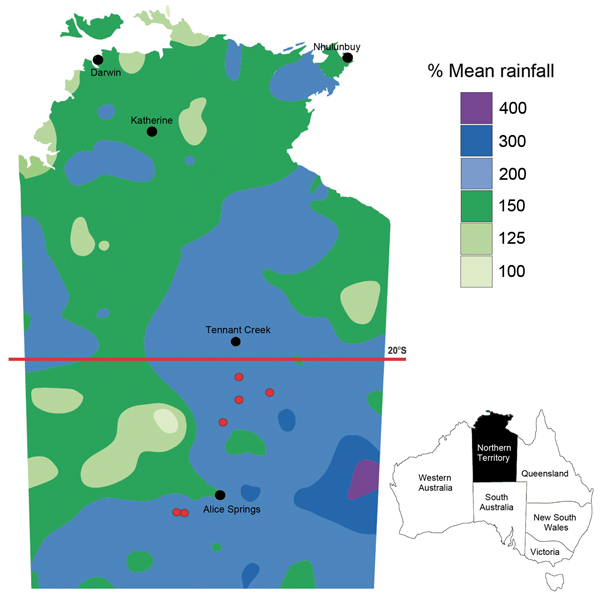Volume 21, Number 6—June 2015
Dispatch
Endemic Melioidosis in Residents of Desert Region after Atypically Intense Rainfall in Central Australia, 2011
Figure

Figure. Rainfall in the Northern Territory of Australia during August 1, 2010–July 31, 2011. Rainfall is expressed as percentages of historical mean; the lowest rainfall total was 100% of mean. Cities and towns are indicated by black dots; locations of 6 persons with melioidosis in central Australia are indicated by red dots. Adapted from the National Climate Centre, Australian Bureau of Meteorology (http://www.bom.gov.au). Inset shows location of Northern Territory in Australia.
Page created: May 15, 2015
Page updated: May 15, 2015
Page reviewed: May 15, 2015
The conclusions, findings, and opinions expressed by authors contributing to this journal do not necessarily reflect the official position of the U.S. Department of Health and Human Services, the Public Health Service, the Centers for Disease Control and Prevention, or the authors' affiliated institutions. Use of trade names is for identification only and does not imply endorsement by any of the groups named above.